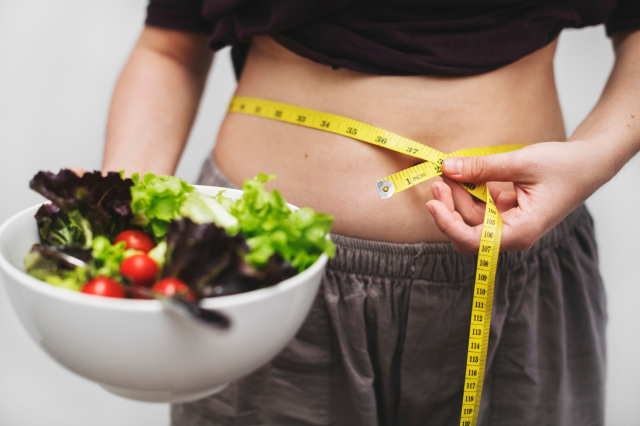The eternal question of “diet vs. exercise” has been debated for years among health experts, fitness enthusiasts, and those looking to achieve or maintain a healthy weight. Both factors—diet and physical activity—play a crucial role in weight management, but determining which has more impact requires examining the science behind each.
The role of diet in weight loss
Diet refers to the quantity and quality of the food we consume. According to studies, diet has a direct impact on body weight due to calorie balance: consuming more calories than the body burns leads to weight gain, while consuming fewer than necessary leads to weight loss.
Calories and energy balance
The basic principle of weight loss is to create a caloric deficit, that is, to consume fewer calories than you expend. Research published in The New England Journal of Medicine [1] indicates that reducing caloric intake is more effective for weight loss than increasing physical activity without changing your diet. This is because it is easier to avoid consuming an extra 500 calories than to burn them off through exercise.
Food quality matters
Not all calories are created equal. Foods high in refined sugars and saturated fats can contribute to weight gain and visceral fat storage, even if total calorie consumption does not seem excessive. In contrast, a diet based on whole foods, such as fruits, vegetables, lean proteins and healthy fats, not only promotes weight loss but also improves metabolic health and reduces the risk of chronic diseases.
The role of exercise in weight regulation
Exercise, on the other hand, plays a key role in energy expenditure and body composition. While it may not be as effective as diet for weight loss, it is essential for maintaining long-term weight loss and improving overall health.
Burning calories
Exercise increases daily caloric expenditure, which can make it easier to create a caloric deficit. Activities such as running, swimming, or cycling can burn between 300 and 600 calories per hour, depending on intensity and body weight. However, an article in the American Journal of Clinical Nutrition [2] suggests that the body tends to compensate for caloric expenditure by increasing hunger or decreasing unintentional activity (such as moving less during the day), which may limit the impact of exercise on weight loss.
Muscle building and metabolism
Exercise, especially strength training, helps build muscle, which increases the basal metabolic rate (BMR). This means that the body burns more calories even at rest. Although the effect may be modest, combining a healthy diet with strength training can be an effective strategy to maintain weight loss and improve body composition.
Diet vs. exercise: Which has more influence?
Most experts agree that diet has a major impact on initial weight loss, while exercise is crucial to maintaining weight loss and improving other aspects of health. Let's find out why!
Efficiency in weight loss
A study conducted by the University of Colorado [3] showed that people who reduce their caloric intake can lose weight more quickly than those who only increase their physical activity. This is because the impact of diet is immediate and direct, while exercise can require weeks or months to show noticeable results on the scale.
Long-term adherence
The challenge with restrictive diets is maintaining them long-term. Many people experience the “rebound effect” of returning to their old eating habits. In this sense, exercise can be more sustainable, as it does not involve deprivation and can be incorporated as part of a healthy lifestyle.
Combined benefits
According to the Center for Disease Control and Prevention (CDC) [4], combining diet and exercise is the most effective strategy for losing weight and keeping it off. A balanced diet provides the nutrients needed for energy, while exercise improves cardiovascular health, muscle function, and emotional well-being.
Additional factors that influence weight
Although diet and exercise are essential, other factors also play an important role:
- Sleep : Lack of sleep is linked to weight gain due to hormonal changes that increase hunger and reduce feelings of satiety.
- Stress : Chronic stress can trigger emotional eating and abdominal fat storage.
- Genetics : Some people have a genetic predisposition to weight gain, which can make it difficult to lose even with proper diet and exercise.
- Hormonal health : Hormonal imbalances, such as hypothyroidism or insulin resistance, can affect body weight and require medical attention.
Conclusion
In the diet vs. exercise debate, both are essential components of a healthy lifestyle, but their impact on weight differs. Diet is the most influential factor for initial weight loss, while exercise plays a key role in overall health and weight maintenance.
To achieve optimal results, the best strategy is to combine a balanced diet with regular physical activity. In addition, it is important to consider other factors such as sleep, stress and hormonal health to address weight in a comprehensive way.
Rather than focusing exclusively on one or the other, taking a balanced and sustainable approach is the key to achieving and maintaining a healthy weight while improving quality of life.
Sources:
- "Effects of Dietary Composition on Energy Expenditure During Weight-Loss Maintenance." The New England Journal of Medicine.
- "Physical activity, appetite control, and obesity." American Journal of Clinical Nutrition.
- University of Colorado. Study on diet and weight loss.
- Centers for Disease Control and Prevention (CDC).






